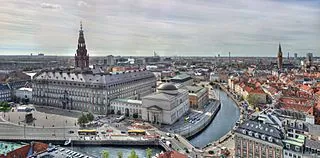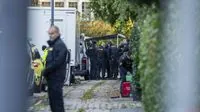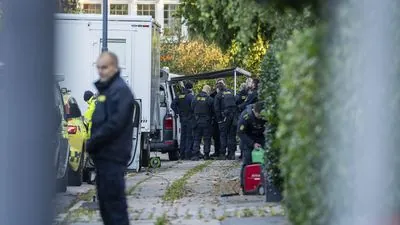Copenhagen
Copenhagen is the capital and most populous city of Denmark, with a population of 1.4 million in the urban area. The city is situated on the islands of Zealand and Amager, separated from Malmö, Sweden, by the Øresund strait. The Øresund Bridge connects the two cities by rail and road.

Some of the key events about Copenhagen
- 1167The city of Copenhagen was officially founded as a fishing village
- 1479The University of Copenhagen, Denmark's oldest university, was established
- 1658The city was besieged and captured by Swedish forces during the Dano-Swedish War
- 1711A plague epidemic killed nearly one-third of the city's population
- 1728The Royal Danish Theatre, one of the oldest theaters in Europe, opened its doors
- 1728A major fire destroyed approximately 28% of the city
- 1795Another devastating fire burned a quarter of the city
- 1801The city was attacked by the British fleet during the Battle of Copenhagen
- 1807The city was bombarded by the British navy, destroying many buildings and killing hundreds of civilians
- 1843The Tivoli Gardens, a famous amusement park and pleasure garden, was inaugurated
- 1847The Copenhagen Zoo, one of the oldest zoos in Europe, was founded
- 1894The iconic Little Mermaid statue was unveiled, becoming a symbol of the city
- 1925Copenhagen Airport, now the largest airport in Scandinavia, began operations
- 1940Copenhagen was occupied by Nazi Germany during World War II
- 1943The city's synagogue and other Jewish institutions were attacked during the roundup of Danish Jews
- 1944The Shell House, used by the Gestapo, was bombed in an RAF operation that accidentally hit a school, killing 86 children
- 1947The Stroget, one of Europe's longest pedestrian shopping streets, was established
- 2000The Oresund Bridge, connecting Copenhagen to Malmo, Sweden, was opened
- 2002The Copenhagen Metro, an automated rapid transit system, began service
- 2015Two terrorist attacks occurred in the city, resulting in multiple casualties and injuries
Disclaimer: This material is written based on information taken from open sources, including Wikipedia, news media, podcasts, and other public sources.































